Bridging Cosmic Threats and International Space Diplomacy
Building upon the foundational question How Cosmic Risks Shape Future Space Cooperation, it becomes evident that effective management of cosmic threats requires a robust, evolving framework of international space diplomacy. This article explores how legal, diplomatic, technological, cultural, and ethical dimensions intertwine to foster resilient cooperation among nations and non-state actors in the face of mounting cosmic hazards.
1. The Role of International Space Laws in Managing Cosmic Threats and Diplomatic Engagements
a. How legal frameworks facilitate trust and cooperation among nations
International space law, primarily governed by treaties such as the Outer Space Treaty (1967), the Rescue Agreement (1968), and the Liability Convention (1972), establishes foundational principles that promote peaceful use and shared responsibility. These legal instruments serve as trust anchors, providing clear guidelines for responsible behavior, transparency, and conflict avoidance. For example, the Outer Space Treaty emphasizes that space activities should benefit all humankind, fostering a cooperative spirit among spacefaring nations.
Moreover, legal frameworks create a common language and set of expectations that underpin diplomatic negotiations, helping to prevent misunderstandings that could escalate into conflicts over cosmic resources or debris management.
b. Limitations of current treaties in addressing emerging cosmic threats
Despite their strengths, existing treaties are often considered insufficient for the modern landscape. Rapid technological advances, such as satellite mega-constellations and autonomous space vehicles, introduce complexities not envisioned when these treaties were drafted. Additionally, the treaties lack enforceable mechanisms to address new threats like space debris proliferation, anti-satellite weapon tests, or cyber vulnerabilities.
For example, recent debris-generating events, like the 2007 Chinese anti-satellite test, highlight gaps in accountability and enforcement, underscoring the need for updated legal standards that can adapt to contemporary threats.
c. The need for evolving legal standards to support peaceful space diplomacy
To bridge these gaps, international legal instruments must evolve through multilateral negotiations, integrating new norms on responsible behavior, debris mitigation, and shared data governance. Initiatives like the UN Committee on the Peaceful Uses of Outer Space (COPUOS) are pivotal in developing binding and non-binding guidelines that reflect technological realities.
Strengthening legal frameworks will not only reduce risks but also build confidence, enabling nations to pursue collaborative projects such as space traffic management systems and joint asteroid detection efforts.
2. Building Resilient Multilateral Mechanisms for Cosmic Threat Mitigation
a. Existing international platforms for space crisis management
Current platforms, such as the United Nations Office for Outer Space Affairs (UNOOSA) and the Space Data Association, facilitate information sharing and coordination during space emergencies. The International Telecommunication Union (ITU) also plays a role in managing orbital spectrum allocations, reducing interference and collision risks.
Additionally, the Space Situational Awareness (SSA) networks—comprising space surveillance networks operated by countries like the United States, Russia, and Europe—provide critical data for tracking debris and potential threats.
b. How diplomacy can foster collaborative responses to space debris and threats
Diplomatic channels are essential for translating shared data into coordinated action. For example, joint notification systems can alert all stakeholders about imminent collision risks, enabling timely maneuvers. Multilateral agreements, like the 2007 Space Debris Mitigation Guidelines, exemplify efforts to establish common standards.
Moreover, diplomatic dialogues can facilitate the development of space traffic management regimes that balance national interests with collective safety, reducing the likelihood of unilateral actions that escalate tensions.
c. Proposing new diplomatic channels for proactive threat assessment and response
Innovative diplomatic approaches include establishing dedicated space security councils akin to the UN Security Council, specifically tasked with managing cosmic threats. These bodies could oversee early warning systems, coordinate debris removal missions, and develop joint response protocols.
Implementing confidence-building measures, such as transparency initiatives and joint simulations, can further enhance trust and preparedness among spacefaring nations and non-governmental actors.
3. Non-State Actors and Their Influence on Space Diplomacy in the Context of Cosmic Risks
a. The rise of private companies and their responsibilities in cosmic risk management
Private entities, such as SpaceX, OneWeb, and Planet Labs, have become significant players in deploying satellite constellations. Their activities influence orbital environments and debris levels. As private companies operate across borders, their responsibilities extend beyond national regulations to international norms promoting responsible behavior.
For instance, SpaceX’s Starlink project has prompted discussions on debris mitigation standards and orbital slot allocation, emphasizing the importance of integrating corporate actors into diplomatic frameworks.
b. Diplomatic challenges posed by non-governmental entities in space
Non-state actors often operate in regulatory grey zones, raising issues of accountability and enforceability. The proliferation of private satellites complicates collision avoidance, especially when data sharing is limited or proprietary.
Addressing these challenges requires establishing international codes of conduct for commercial space activities, possibly through treaties or voluntary guidelines endorsed by the UN.
c. Strategies for integrating non-state actors into international space diplomacy frameworks
Effective strategies include creating public-private partnerships, incentivizing adherence to international norms, and promoting transparency through shared data platforms. Formal dialogues between governments and industry leaders can foster mutual understanding and collective responsibility.
Furthermore, establishing certification programs for responsible space behavior can align private sector initiatives with global safety standards.
4. Technological Diplomacy: Innovating for Safer and Cooperative Space Operations
a. The role of joint technological initiatives in reducing cosmic risks
Collaborative projects like the Global Space situational Awareness Network exemplify how joint technological efforts enhance debris tracking and collision avoidance. Such initiatives foster trust and shared ownership of space safety.
Developing interoperable space traffic management systems requires diplomatic consensus on data sharing protocols, standards, and operational procedures.
b. Diplomatic efforts to share space situational awareness technologies
Sharing SSA technologies, such as radar and optical tracking data, improves global monitoring capabilities. Countries and private entities can establish bilateral or multilateral data exchange agreements, enhancing transparency and early threat detection.
For example, the U.S. Space Surveillance Network collaborates with allies under the Space Data Association, demonstrating how diplomacy underpins technological sharing.
c. Building consensus on norms for emerging space technologies (e.g., AI, mega-constellations)
Emerging technologies like AI-driven satellite operations and large constellations pose new risks and ethical questions. Establishing international norms and standards—similar to the principles outlined in the Artemis Accords—can guide responsible development and deployment.
Consensus-building involves engaging diverse stakeholders, including technologists, policymakers, and civil society, to develop inclusive, adaptable frameworks that promote safety and innovation.
5. Cultural and Scientific Diplomacy as Tools for Conflict Prevention in Space
a. Promoting shared scientific interests to foster trust among nations
Joint scientific missions, such as the International Space Station (ISS), exemplify how shared research fosters collaboration and trust. Expanding such efforts to cosmic risk mitigation—like joint asteroid observation programs—can build mutual confidence.
Scientific diplomacy also involves open data sharing and collaborative problem-solving, which can diffuse tensions and promote peaceful coexistence in space.
b. Cultural exchanges and dialogue to bridge differences over cosmic risk perceptions
Cultural diplomacy, including educational exchanges and joint conferences, helps bridge perceptions and values related to space exploration and safety. These activities promote understanding of diverse national priorities and risk assessments.
For example, international forums that include scientists, policymakers, and civil society create platforms for dialogue, reducing misunderstandings that could lead to conflicts.
c. Case studies on successful scientific collaborations mitigating space tensions
| Project | Description | Outcome |
|---|---|---|
| International Asteroid Warning Network (IAWN) | Global collaboration for asteroid detection and tracking | Enhanced early warning capabilities and increased trust among participating nations |
| Lunar Gateway International Partnership | Joint development of lunar orbital platform involving NASA, ESA, Roscosmos, and others | Strengthened diplomatic ties and shared technological advancement |
6. Ethical Dimensions of Space Diplomacy in Addressing Cosmic Threats
a. Moral considerations in prioritizing space safety and sustainability
Ethical responsibilities include safeguarding the orbital environment for future generations and ensuring equitable access to space resources. Principles like the «Space Sustainability Charter» emphasize minimizing debris and preventing harmful activities.
Diplomacy must incorporate these moral considerations into binding agreements and voluntary standards, fostering a culture of responsibility.
b. International consensus on responsible behavior in space
Consensus-building involves adopting norms that discourage anti-satellite tests and reckless debris generation. The ongoing discussions at COPUOS aim to develop codes of conduct to guide responsible behavior globally.
Effective diplomacy can promote widespread adoption of these norms, aligning diverse actors toward shared ethical standards.
c. The role of diplomacy in establishing ethical standards for future space exploration
As private companies and nations plan for lunar bases, asteroid mining, and Mars missions, diplomatic efforts must address ethical concerns related to environmental impact, resource sharing, and sovereignty. Developing international frameworks ensures that exploration benefits all and minimizes conflict.
These standards can be incorporated into new treaties and soft law instruments, guiding responsible innovation.
7. Returning to the Core: How Enhanced Diplomatic Frameworks Can Shape Future Space Cooperation Amid Cosmic Risks
a. Summarizing the interconnectedness of diplomacy and cosmic risk management
The complex nature of cosmic threats necessitates a multi-layered diplomatic approach—encompassing legal, technological, cultural, and ethical dimensions. Strengthening these interconnected frameworks fosters resilience and mutual trust, enabling effective responses to crises.
b. How strengthening space diplomacy can mitigate future cosmic threats
Enhanced diplomatic channels facilitate early warning, coordinated debris mitigation, and the development of responsible technological innovations. These efforts reduce the likelihood of space conflicts and environmental degradation.
c. Reaffirming the importance of international collaboration in shaping a resilient space future
Ultimately, addressing cosmic risks requires a global community committed to shared stewardship of space. The evolution of legal standards, diplomatic initiatives, and ethical norms will determine whether future space activities are sustainable and peaceful.
As the parent article emphasizes, forging resilient, inclusive, and forward-looking diplomatic frameworks is essential for securing a safe and cooperative space environment for generations to come.


